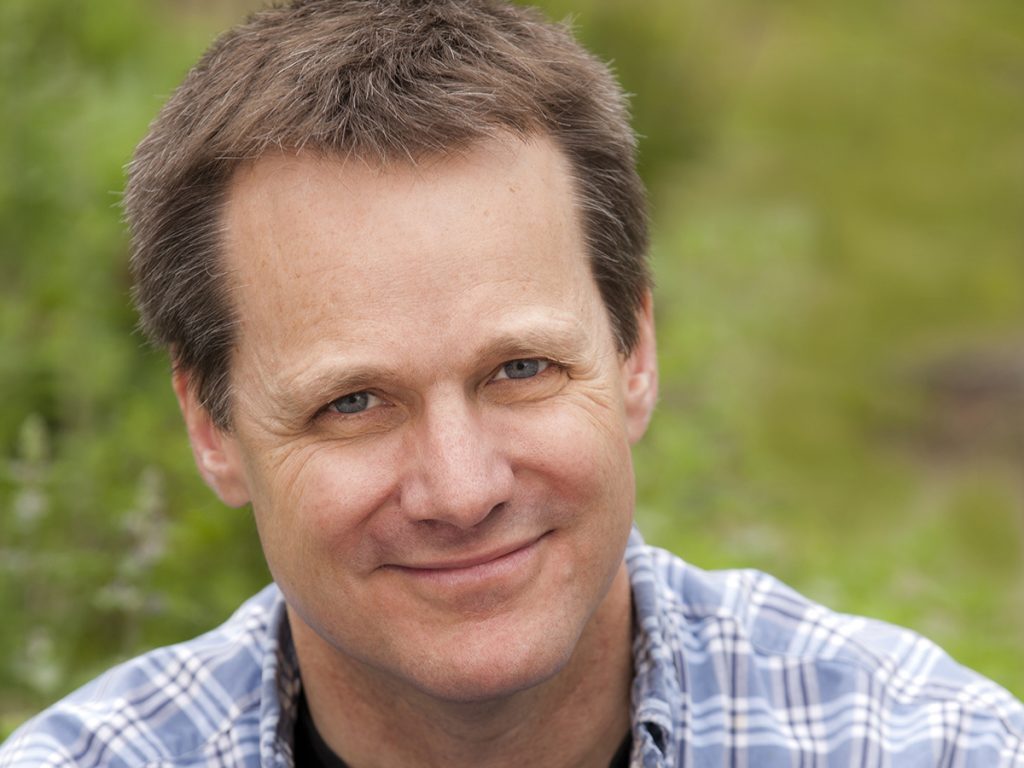Q&A: Riley on the Beatles’ Breakup and the Peter Jackson Doc

This Thanksgiving weekend, audiences will get a new glimpse into the dissolution of the biggest rock band in history through Peter Jackson’s The Beatles: Get Back, streaming November 25-27 on Disney +.
The Lord of the Rings director’s documentary, four years in the making, promises to tell a more nuanced story about band’s breakup than what fans had previously understood based on the documentary Let It Be, released shortly after the Beatles called it quits in 1970.
Emerson’s resident Beatles expert, Associate Professor of Journalism Tim Riley, promises to add context and answer questions about the Fab Four, their history, and what we learn in the seven-hour doc in a Twitter Space chat on Sunday, November 28, 8:00 pm EST. NPR critic Riley is the author of What Goes On: The Beatles, the Music in Their Time (with Walter Everett, Oxford University Press, 2019), Lennon: Man, Myth, Music (Hyperion, 2011), and Tell Me Why: A Beatles Commentary (Knopf/Vintage, 1988).
Emerson Today asked Riley about his thoughts on the end of the Beatles and his hopes for the new film:

As someone who has spent a career writing about The Beatles and is intimately familiar with their history, what are you hoping to learn from this film? Are there any outstanding questions or mysteries you’d like solved?
The Let It Be film released in 1970 has long served as a major conundrum for scholars. It came out AFTER their final album, Abbey Road (Fall 1969), so it always registered as their “last” project, the one that diagrammed their breakup. But it was actually filmed in January of 1969. Although it was a fractious period and they always spoke of it as a downer, it was clear they had some fruitful sessions because of how the rooftop finale soared above everything else. We also have heard almost all of this material on audio bootlegs while never having seen the footage, so it’s a gap between what we know in our ears vs. how we imagine it happening in our heads. This film fills a lot of gaps.
I’m hoping we learn more about the details of the tensions as well as how their method of working together brought out such creative fervor. To me, it’s clear that even though they were teetering on the brink of breaking up, they felt obliged to follow through where the music led them, and it ultimately worked out well even though they didn’t think much of it.
Jackson’s film uses footage originally shot for Michael Lindsay-Hogg’s 1970 documentary, which The New York Times called “a joyless document of the band’s collapse.” Why do you think that film was edited for “maximum dreariness” (again the Times)?
That’s the key question: Why has Let It Be been around in various underground formats for 52 years without “correction” or comment — why hand this material over to a director now? And why do it without answering that key question of why the original cut turn out the way it did?
Lennon always felt the film made McCartney out as a hero, but now people agree that McCartney doesn’t come off so well — it’s a jumble of politics, unknowable personal agendas, and material that seems to goad them into behaving better than they want to.
To a Beatles scholar – or just a fan – why is a more complete chronicle of those recording sessions important?
For the most famous and creatively important rock band, it’s a window into their working habits (albeit staged for camera) that can tell us a great deal about how songs assume their arrangements and how even a lead composer of a song can integrate suggestions for players that become a key part of how we think of the composition. McCartney’s bass line and upper harmonies on Lennon’s “Don’t Let Me Down,” for example.
From a musician’s standpoint, what do you hear when you listen to Let It Be?
I hear a very talented band working against a very tight deadline with varying degrees of motivation, with an uncanny ability to pull a triumph out of lackluster sessions.
In many ways, it confirms what we already knew about McCartney’s taking the leadership reins and steering them through to the end, but this new footage makes it look less forced than the original cut, and Lennon’s participation seems more active. It’s almost as if that Let It Be film was an act of self-sabotage that didn’t quite work because they couldn’t quite bring themselves to stoop that low.
Join Tim Riley’s Twitter Space chat on Sunday, November 28, 8:00 pm EST.
Categories